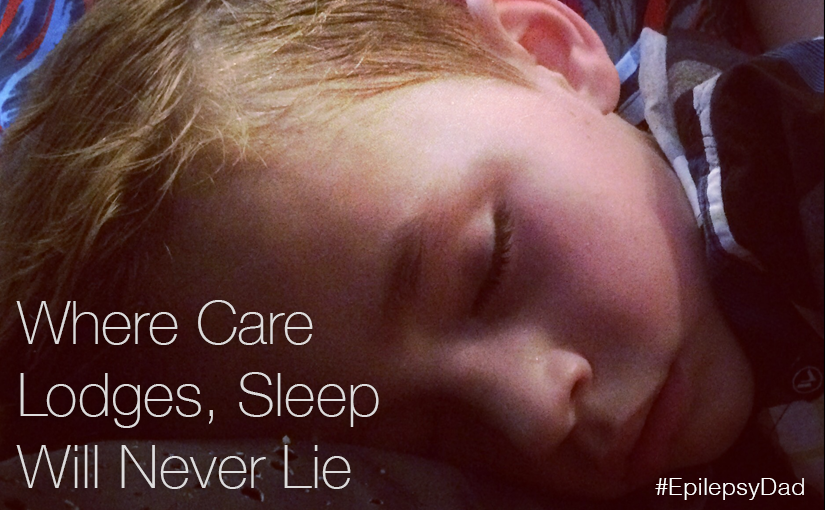I walked from the living room to the kitchen, passing the door that led down to my son’s room. Out of the corner of my eye, I noticed a tuft of red hair sticking through the doorway. I stopped, tilted my head to the side, and saw an eye widen with the realization that the person it was attached to had just been caught.
This was the third time he was out of bed. He was restless and did not want to sleep alone. I slowly pulled open the door and asked him what he needed. “I was wondering,” he said, looking down at the floor, “if someone wanted to lay with me downstairs.” During the last few weeks, when his seizures were worse and when we were on the road, we often slept in the same bed. Now that we were home, we were transitioning back to our normal sleeping arrangements. This anxiety was an anticipated side effect. On the first night, he was so exhausted that he fell asleep in his own bed before he could plead his case for one my night in ours. On this second night, though, following a long afternoon nap, he was in a better position to resist.
“Come on, buddy,” I said as I led him back down in to his room. I climbed in to his bed and he followed, laying down next to me and putting his fingers in his mouth. By the light of his nightlight, I could see him adjust his body in to its ready-to-sleep position, and the tell-tale sign of impending sleep where he picks gently at his upper lip soon followed. His breath began to lengthen and, after only a few minutes, he was asleep.
On the nights that followed, we brought him back up to our room because his morning seizures had once again gotten worse and it was easier on all of us to be in the same room when they happened. No late night trips down the stairs and fumbling through the dark to find him sitting up in his bed; instead, we were next to him to reassure him and coax him back to sleep.
This has been the pattern of our lives for the past two years. When we think we are getting a handle on his seizures, we transition him back to his room. When he is in his bed, I vigilantly watch the monitor throughout the night and listen for any signs our most unwelcome intruder. When his seizures inevitably get worse again, we bring him back in to our room and spend the night uncomfortably cramped in a small bed, waiting for the sounds and uncontrollable movements that accompany the attack on my son’s brain.
If I seem tired, it’s because I am. Sleep is sporadic and short and only serves to keep me functional the next day. Some days, it’s barely enough to keep the lights on, but I find a way. Because most of us that are living this life don’t have the luxury or desire to stop because if we do…what we miss could be everything. So we stay on watch, careful and committed, for as long as we are needed.
This is what it is like to be the parent of a child with uncontrolled seizures.
Care keeps his watch in every old man’s eye,
And where care lodges, sleep will never lie.
― William Shakespeare, Romeo and Juliet
